- Home
- Gustave Aimard
The Red Track: A Story of Social Life in Mexico
The Red Track: A Story of Social Life in Mexico Read online
Produced by Camille Bernard and Marc D'Hooghe athttps://www.freeliterature.org (Images generously madeavailable by the Internet Archive - University ofCalifornia)
THE RED TRACK
A Story of Social life in Mexico
BY
GUSTAVE AIMARD
AUTHOR OF "ADVENTURERS," "PEARL OF THE ANDES," "TRAIL HUNTER,""PIRATES OF THE PRAIRIES," "TRAPPER'S DAUGHTER," "TIGERSLAYER," "GOLD SEEKERS," "INDIAN CHIEF," ETC.
LONDON:
CHARLES HENRY CLARKE, 13 PATERNOSTER ROW.
PREFACE.
The present volume of GUSTAVE AIMARD'S works is a continuation of the"Indian Chief," and conclusion of the series comprising that work, the"Gold Seekers," and the "Tiger Slayer."
At the present moment, when we are engaged in a war with Mexico, I feelassured that the extraordinary and startling descriptions given in thisvolume of the social condition and mode of life in the capital of thatcountry will be read with universal gratification; for I can assertconfidently that; no previous writer has ever produced such a graphicand truthful account of a city with which the illustrated papers willsoon make us thoroughly acquainted.
If a further recommendation be needed, it will be found in the fact thatthe present volume appears in an English garb before being introduced toFrench readers. GUSTAVE AIMARD is so gratified with the reception hisworks have found in this country, through my poor assistance, that hehas considered he could not supply a better proof of his thankfulnessthan by permitting his English readers to enjoy, on this occasion, thefirst fruits of his versatile and clever pen. This is a complimentwhich, I trust, will be duly appreciated; for, as to the merits ofthe work itself, I have not the slightest doubt. Readers may imagineit impossible for GUSTAVE AIMARD to surpass his previous triumphs inthe wildly romantic, or that he could invent anything equal to the"Prairie Flower," a work which I venture to affirm, to be the finestIndian tale ever yet written, in spite of the great authors who havepreceded AIMARD; but I ask my reader's special admiration for the "REDTRACK," because in it our favourite author strikes out a new path, anddisplays versatility which puts to the blush those bilious critics--fewin number--I grant, among the multitude of encouraging reviewers, whohave ventured an opinion that GUSTAVE AIMARD can only write about Indianlife, or, in point of fact, that he is merely a hunter describing hisown experiences under a transparent disguise.
Well, be it so, I accept the assertion. GUSTAVE AIMARD is but ahunter; he has seen nought but uncivilized life; he has spent yearsamong savages, and has returned to his own country to try and growEuropeanized again. What then? The very objection is a proof of hisveracity; and I am fully of the conviction that every story he has toldus is true. It is not reasonable to suppose that a man who has spent thegreater part of his life in hunting the wild animals of America--whohas been an adopted son of the most powerful Indian tribes--who has foryears never known what the morrow would bring forth, should sit downto invent. The storehouse of his mind is too amply filled with marvelsfor him to take that needless trouble, and he simply repeats on paperthe tales which in olden limes he picked up at the camp fires, or heardduring his wanderings with the wood rangers.
And it is as such that I wish GUSTAVE AIMARD to be judged by Englishreaders. His eminent quality is truth. He is a man who could not setdown a falsehood, no matter what the bribe might be, he has livedthrough the incidents he describes, and has brought back to Europethe adventures of a chequered life. He does not attempt to fascinatehis readers by a complicated plot. He does not possess the marvellousinvention of a Cooper, who, after a slight acquaintance with a fewpowerless Indians, wrote books which all admirers of the Englishlanguage peruse. But GUSTAVE AIMARD possesses a higher quality, in thefact that he only notes down incidents which he has seen, or which hehas received on undoubted evidence from his companions.
The present is the twelfth volume of GUSTAVE AIMARD'S works to which. Ihave put my name; and, with the exception of a few captious criticismswhose motive may be read between the lines, the great body of theBritish Press has greeted our joints efforts with the heartiestapplause. The success of this series has been unparalleled in the annalsof cheap literature. Day by day the number of readers increases, and thepublication of each successive volume creates an excitement which cannotfail to be most gratifying to the publishers.
To please all parties, the proprietors of AIMARD'S copyrights haveprojected an Illustrated Series, to which I would invite most earnestattention. Although by this time I am saturated with Indian life, Iconfess that I never thoroughly understood it till I saw the engravingsafter a Zwecker, a Huard, and a Corbould. The artists have carefullystudied their subjects, and gone to the fountain-head for information;and the result is, that they have produced a series of works which onlyneed to be seen to be appreciated. The last volume illustrated is "TheFreebooters," which was entirely intrusted to Mr. Corbould, and thoughI do not wish for a moment to depreciate the other artists, I felt, onseeing the illustrations, that GUSTAVE AIMARD was worthily interpreted.All I can urge upon readers is, that they should judge for themselves.
To wind up this unusually long Preface, into which honest admiration forthe author has alone induced me, I wish to say that it affords me anever-recurring delight to introduce GUSTAVE AIMARD'S works to Englishreaders, while it causes me an extra pleasure, on this occasion, to beenabled to repeat that the present volume appears on this side of theChannel before it has been introduced to French readers. And, knowing asI do the number of editions through which AIMARD'S books pass in his ownnative land, I can appreciate the sacrifice he has made on this occasionat its full value.
LASCELLES WRAXALL.
DRAYTON TERRACE, WEST BROMPTON, _March_, 1862.

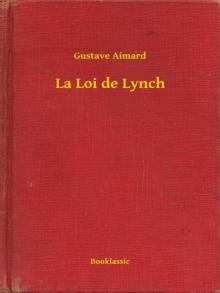 La loi de lynch. English
La loi de lynch. English The Guide of the Desert
The Guide of the Desert The Trail-Hunter: A Tale of the Far West
The Trail-Hunter: A Tale of the Far West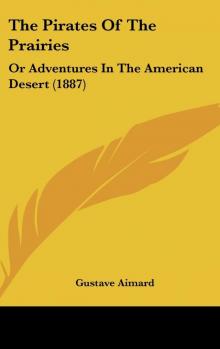 The Pirates of the Prairies: Adventures in the American Desert
The Pirates of the Prairies: Adventures in the American Desert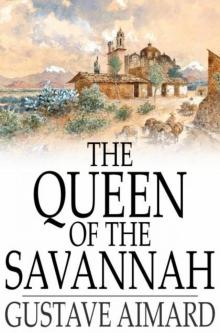 The Treasure of Pearls: A Romance of Adventures in California
The Treasure of Pearls: A Romance of Adventures in California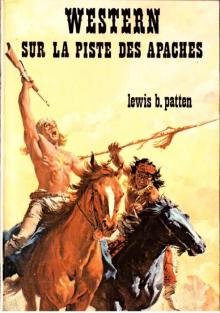 Les outlaws du Missouri. English
Les outlaws du Missouri. English Les trappeurs de l'Arkansas. English
Les trappeurs de l'Arkansas. English The Border Rifles: A Tale of the Texan War
The Border Rifles: A Tale of the Texan War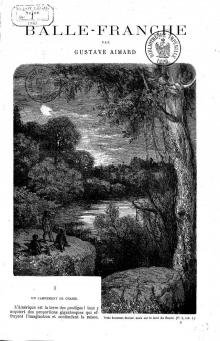 Balle-Franche. English
Balle-Franche. English The Queen of the Savannah: A Story of the Mexican War
The Queen of the Savannah: A Story of the Mexican War The Red Track: A Story of Social Life in Mexico
The Red Track: A Story of Social Life in Mexico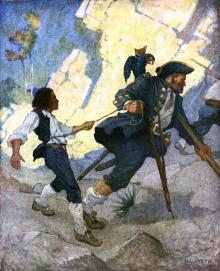 La fièvre d'or. English
La fièvre d'or. English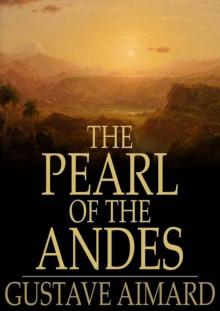 The Pearl of the Andes: A Tale of Love and Adventure
The Pearl of the Andes: A Tale of Love and Adventure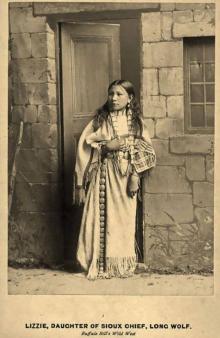 Les fils de la tortue. English
Les fils de la tortue. English The Indian Chief: The Story of a Revolution
The Indian Chief: The Story of a Revolution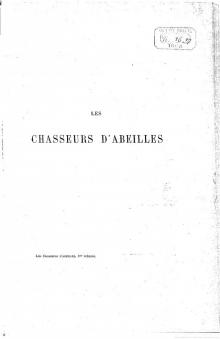 Les chasseurs d'abeilles. English
Les chasseurs d'abeilles. English The Adventurers
The Adventurers